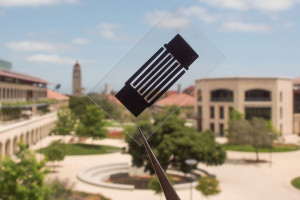
The “designer carbon” improved the supercapacitor’s electrical conductivity threefold compared to electrodes made of conventional activated carbon.
Image: Stanford University
Stanford University researchers have developed a new “designer carbon” that can be fine-tuned for a variety of applications, including energy storage and water filters.
The newly developed carbon material has shown that it can significantly improve the power delivery rate of supercapacitors and boost the performance of energy storage technologies.
“We have developed a ‘designer carbon’ that is both versatile and controllable,” said Zhenan Bao, past member of ECS and the senior author of the study. “Our study shows that this material has exceptional energy-storage capacity, enabling unprecedented performance in lithium-sulfur batteries and supercapacitors.”
(PS: Check out some of Bao’s past papers in the Digital Library!)
Not only is the new carbon an improvement over existing versions, it also has a huge potential scope and is inexpensive to produce.


